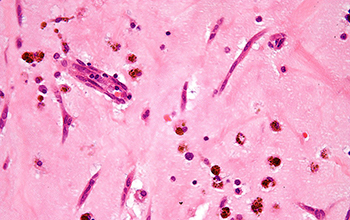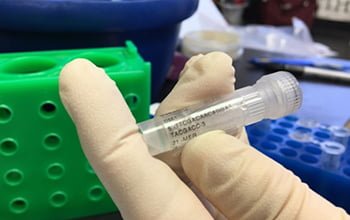
Research News
New technology allows researchers to look at strain within cells without disturbing their physiology
May 16, 2019
Researchers have developed a new technology that allows them to probe cell changes without disturbing the cell’s physiology – an advancement that helps scientists look more closely at cell changes to understand human health, according to a new paper in Cell Reports.
The research was performed by professor Soham Ghosh, Colorado State University, professor Corey P. Neu, University of Colorado at Boulder, and others.
The technology, known as deformation microscopy, allowed more accurate study of the interplay between the nuclei of heart and skeletal muscle cells and their mechanical environment. In the future, the technology can also be used to investigate the response of other cell types, including cartilage and cancer cells.
A National Science Foundation Faculty Early Career Development award to Neu helped support the research. Neu received funding from the foundation’s Directorate for Engineering to apply advanced microscopy, image registration and molecular biology methods to study the biomechanics of the cell’s nucleus.
“NSF invests in biomechanics and mechanobiology research to help us better understand and model processes within cells,” says Michele Grimm, NSF program director for Biomechanics and Mechanobiology. “What we learn can lead to advances for cellular manufacturing, tissue engineering and medical tools and treatments.”
—
NSF Public Affairs,
(703) 292-8070 media@nsf.gov
Source: NSF News
Brought to you by China News







